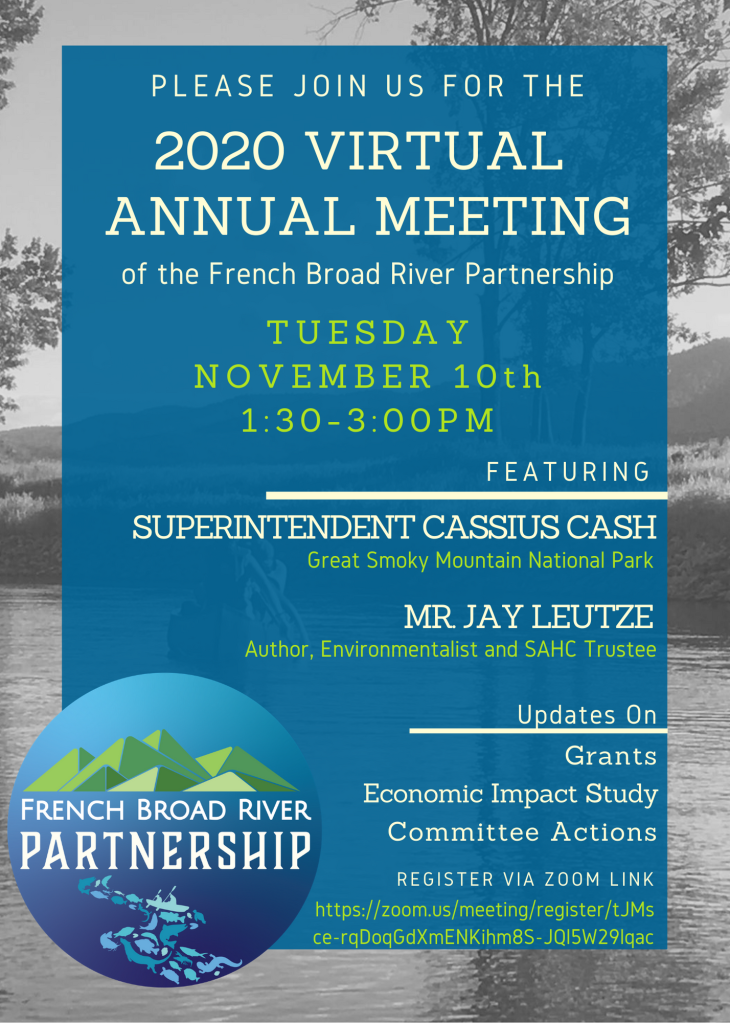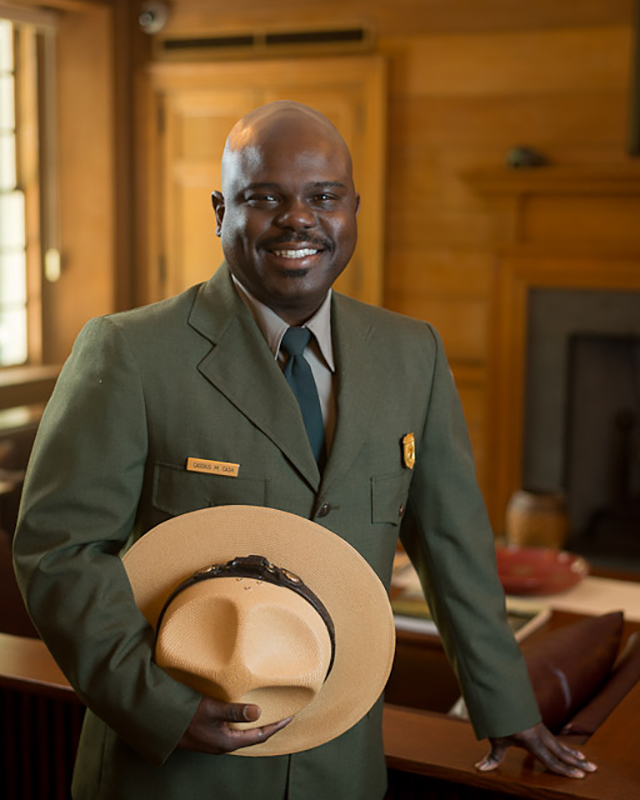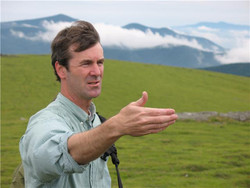
Cassius Cash, Superintendent of the Great Smoky Mountains National Park, is a native of Memphis, Tennessee and thrilled to be back on his home turf and working on the land and with the communities of the Great Smoky Mountains.
Since his arrival in the Great Smoky Mountains in February of 2015, Cash has experienced many great rewards as well as challenges.

- From hosting the Hike 100 Centennial program that involved him hiking with more than 180 young people and encouraging them to become future stewards of the park.
- To meeting the demands of some 11.4 million park visitors.
- And most recently, oversaw the opening of the newest 15-mile section of the Foothills Parkway, extending from Walland TN to Wears Valley TN. Over 200,000 people experienced it in first six week of opening.

Cash has been an in-demand speaker for nearly four years, sharing his passion for leadership, for wild places, and for inspiriting our youth to become tomorrow’s leaders. He has spoken to the Knoxville Bar Association, the National Boy Scouts of America, and to the Congressional Black Caucus; to name a few. He has also been interviewed and featured in several magazines and news outlets, like Knoxville’s CityView magazine, the Huffington Post, and Blue Ridge Country magazine, and CBS National News.
As Cash moves into his fifth year of service and the Great Smokies Park moves into its 103nd year, his leadership message about the importance of embracing challenges and taking risks, about the power of relationships and community, and about the importance of truly knowing yourself as the way to move forward, rings with universal appeal.

Jay Leutze was raised in Chapel Hill, NC, and lives in the Southern Appalachian mountains on the North Carolina-Tennessee border. Trained as an attorney, he has become a leading voice for state and federal conservation funding for investment in public lands. He is the board president of Southern Appalachian Highlands Conservancy, one of the nation’s most established land trusts. He is the author of Stand Up that Mountain: The Battle to Save One Small Community in the Wilderness Along the Appalachian Trail (Simon & Schuster). In the tradition of A Civil Action, it’s the compelling true story of a North Carolina outdoorsman who teams up with his Appalachian neighbors to save a treasured landscape from being destroyed.
He is a national spokesman for the Land and Water Conservation Fund Coalition and has testified before Congress on the need for increased funding for public land conservation. He is frequently asked to be a guest lecturer on conservation. Since publication of Stand Up That Mountain he has lectured at 36 universities across the country, teaching courses in literature, environmental studies, environmental law and public policy, and has performed over 220 public readings. He recently appeared at the National Press Club in Washington DC. In 2012, he was awarded North Carolina’s highest civilian honor, The Order of the Longleaf Pine, for his contribution to the conservation of land and water in his home state. He was the winner of the 2013 North Carolina Governor’s Conservation Communicator of the Year Award and was named Outstanding Conservation Advocate by the Roosevelt-Ashe Society. From 2007-2020 he has been on the team leading the effort to pass and implement the landmark Great American Outdoors Act.
Stand Up That Mountain has won numerous awards, including The Reed Environmental Writing Award from the Southern Environmental Law Center, and was named the Southern Independent Booksellers Alliance Nonfiction Book of the Year. The American Bar Association honored the book at its Silver Gavel Awards dinner in July, 2013, citing it as “a work of art that has added to the public’s understanding of the law.”